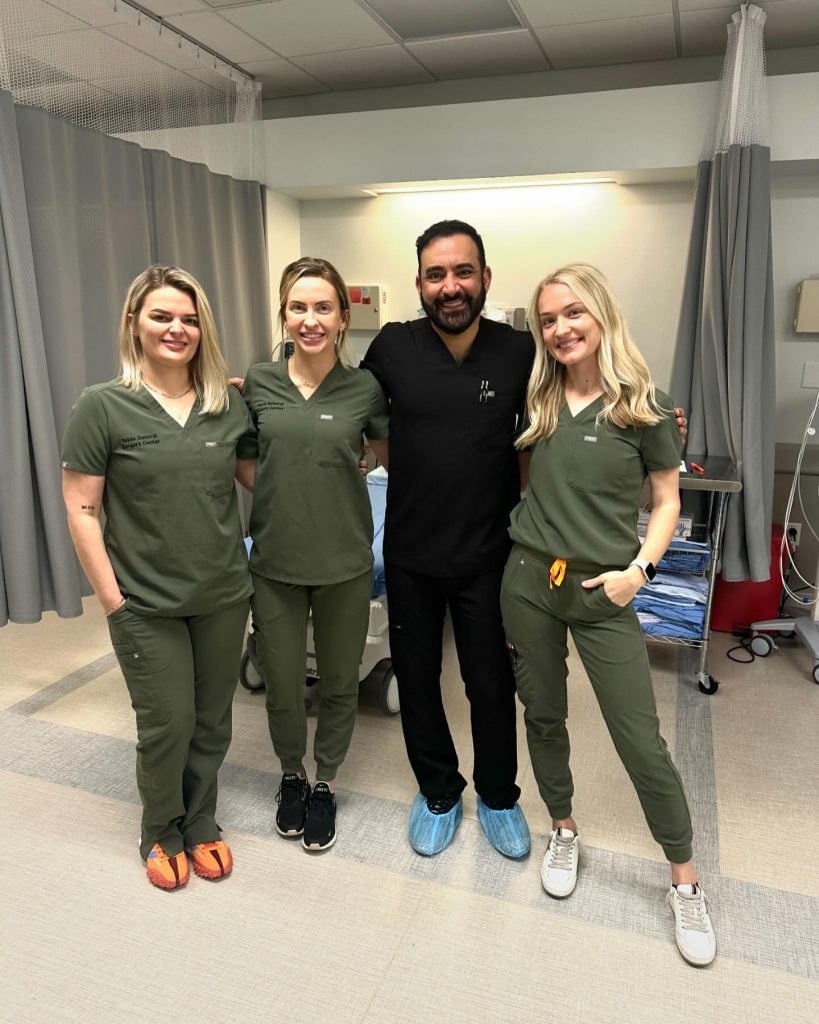Knee pain is like the alarm system of the body’s musculoskeletal network, alerting you that something might not be quite right. But just like with an alarm, the real question is: what triggered it? Is it a mischievous cat (read: minor strain), or an actual burglar (read: major injury)? If you’re reading this, you probably have some questions, and we’re here to help. Whether you’re a seasoned marathoner, a weekend warrior, or someone who just took a wrong step off the curb, our knee pain doctors at Nortex Spine and Joint Institute in Dallas, TX are here to guide you.
Most knee pain is due to arthritis, a torn ACL, or meniscus
Knee pain, while common, can be due to various reasons. A large percentage is caused by arthritis, torn ACL, or a meniscus injury. While arthritis is more of a wear-and-tear kind of issue, a torn ACL or meniscus is often related to trauma or overuse.
X-ray shows arthritis, but an MRI is needed for a torn ACL or meniscus
An X-ray is like your trusty flashlight, shedding light on bone-related issues, and for our purposes here, mainly arthritis. An MRI, on the other hand, is akin to a high-resolution camera, capturing detailed images of soft tissues, which includes ligaments like the ACL and cushioning structures like the meniscus.
Your age, injury history, physical exam findings, and X-ray will determine if an MRI is needed
Before we dive deeper, it’s crucial to understand that your individual situation – your age, past injuries, findings from a physical examination, and what your X-ray reveals – will guide our orthopedic specialists in recommending the best diagnostic route for you.
When should you get an MRI of the knee?
- The Meniscus: Acting as a cushion between your thighbone and shinbone, the meniscus is crucial for knee functionality. If there’s a suspicion of a tear, particularly if there’s persistent pain, swelling, or locking of the knee, an MRI becomes imperative to pinpoint the damage.
- The Anterior Cruciate Ligament (ACL): A pivotal ligament for knee stability, ACL injuries can range from mild sprains to complete tears. Surgeons often rely on an MRI to view the extent of an ACL injury and determine the best treatment course.
- Arthritis: While X-rays are generally effective in diagnosing arthritis, in some instances, an MRI might be beneficial to ascertain the severity of joint damage or if other soft tissues are affected.
How do you know if your knee problem is serious?
Persistent pain, swelling, a feeling of instability, or sounds (like popping or crunching) are indicators that you shouldn’t ignore. It’s crucial to consult with an orthopedic specialist to determine the underlying cause.
How do you know if you need an MRI?
After visiting us, we’ll assess the pain’s origin based on your symptoms, physical examination, and possibly an X-ray. If the findings indicate potential soft tissue damage, we’ll recommend an MRI for a comprehensive evaluation.
Connect with us
Knee pain doesn’t discriminate, and neither do we. Whether you’re a professional athlete or someone just wanting to walk without pain, our team of dedicated surgeons and specialists at Nortex Spine and Joint Institute is committed to getting you back on your feet – literally.
Don’t let knee pain sideline you. If you’re in the Dallas, TX area, trust the experts who know best. Contact Nortex Spine and Joint Institute today and take the first step towards a pain-free tomorrow.








